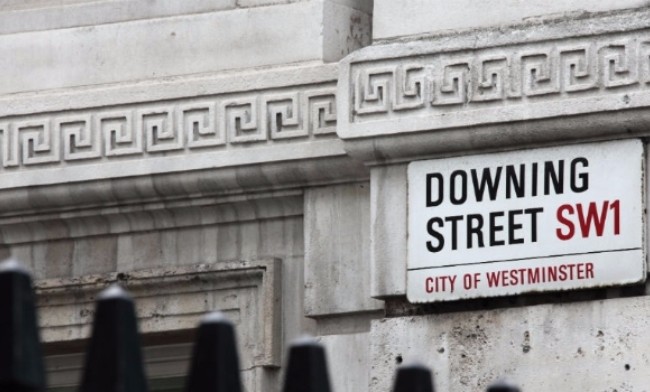On the surface, this year’s UK election is much like any other. Only two political parties could provide Britain’s next Prime Minister, the Conservatives or Labour. The two parties are each about 15 – 20 points ahead in the polls of UKIP, which is likely to trail in a very distant third. The Conservatives or Labour are the same two parties that have dominated British political life for 80 years. Yet in recent years the basis of their hegemony has been dramatically weakened. In the 1951 election, the two parties between them controlled 97 per cent of the popular vote. This May, the proportion is most likely to recede below 67 per cent and no-one doubts that in future it will continue to decline further.
In an age when politicians everywhere emphasise the inability of the state to deliver significant reforms, voting, which was once a matter of fierce partisan identities, has instead become a matter of mutually cancelling dislikes. With one notable exception the parties have competed to keep their engagements with the public to the narrowest minimum, relying on US-style remote and negative campaigning.
The Conservatives, the incumbents, have been most strident in relying on a media-driven campaign. Tory strategy, drawn up by Lynton Crosby, John Howard’s former spin doctor, has relied on the authority of incumbency, the belated economic recovery from the long post-2008 slump, and claims that Labour’s Ed Miliband is awkward and incapable of office. Of these strands, the most important has been the last. It caused the Conservatives to sabotage the televised leaders’ debate by insisting on a format in which the leaders of Britain’s seven largest parties were given equal time to speak. This had the intended effect of relegating Labour’s Ed Miliband, but also made the Tories’ David Cameron, the Prime Minister, appear a mere bit player. Although the Conservatives may yet retain enough seats to remain in office the approach has notably failed to strike a chord with either swing or core Tory voters.
The polls suggest that the two parties likely to lose most seats in the election are the Conservatives and their present coalition partners, the Liberal Democrats. The latter peaked in 2010, on the basis of young voters punishing New Labour for its war in Iraq. In London in 2010, the Lib Democrats, with celebrity endorsements by counter-culture figures, seemed to benefit from a near youth insurgency. Around 30 per cent of voters aged 17–25 voted Liberal Dem in 2010. But having promised not to increase student fees, the Liberal Democrats formed a coalition with the Conservatives who did just this. This election they are likely to lose about half their votes and seats.
Labour has done better than expected but possibly not well enough. It still carries the negative associations of the last days of the long Blair-Brown government. Miliband is to the left of either of those old figures. However, he has often seemed a prisoner of his own party, in which the majority of the shadow cabinet seem nostalgic for the old days when it was possible for Labour to outbid other parties by leaping to their right without fatally antagonising the party’s historic voting base.
Miliband’s boldest policy commitments have been to reverse small elements from the Coalition’s five years of malign reforms, such as the ‘bedroom tax’ and ‘benefits cap’ which prevent benefits claimants from being able to afford social housing in affluent areas, or the Coalition’s fees for employment tribunals. But even the promises of abolition have had to be dragged out of Labour, despite this being the normal cut and thrust of partisan politics. At every possible stage Labour has immediately gone back to positions tolerable to our yellow press in which Rupert Murdoch remains a key figure.
A change has been most visible in Scotland, where a large majority of seats are likely to be won by the Scottish National Party, which will almost certainly leap over the Liberal Democrats and become the UK’s third largest Parliamentary party. It would almost certainly be the third largest in terms of votes also, if only the SNP did not restrict itself to standing in Scotland.
Scotland has been Labour’s Parliamentary fiefdom for several decades, but the SNP has been outperforming Labour for some time in the Scottish Parliament elections, which take place separately to the elections to the UK Parliament in Westminster. The real game-changer came last year with Scotland’s independence referendum, lost only by a relatively narrow margin of 55 per cent to 45 per cent. In the process, very large numbers of working-class voters switched to the SNP from Labour. Since August 2014, the SNP’s membership has quadrupled, and around one in 50 Scots are now members of the SNP, compared to the one in 200 people in the UK who are members of either the Conservatives or the Labour Party.
From Labour’s perspective, the most important feature of the election is the loss of Scottish seats, which will almost certainly deprive Labour of a Parliamentary majority. But from the point of the UK as a whole, Scotland is potentially the sign of a much more extraordinary process, which happens when a major party with 40 per cent of the national vote becomes one with 30 per cent. For a long time, this fall might seem to make no material difference. Their seats are maintained, they remain a big player. But, should this decline take on a sharper form locally, then a stasis can be reached where that major party has no prospect of governing as a majority again anytime soon.
Neither UKIP nor the Greens is showing signs of overpassing the Conservatives or Labour in England in the way that the SNP has overwhelmed Labour, but a pattern has been set for the future. The glacier, when it melts, melts rapidly.



